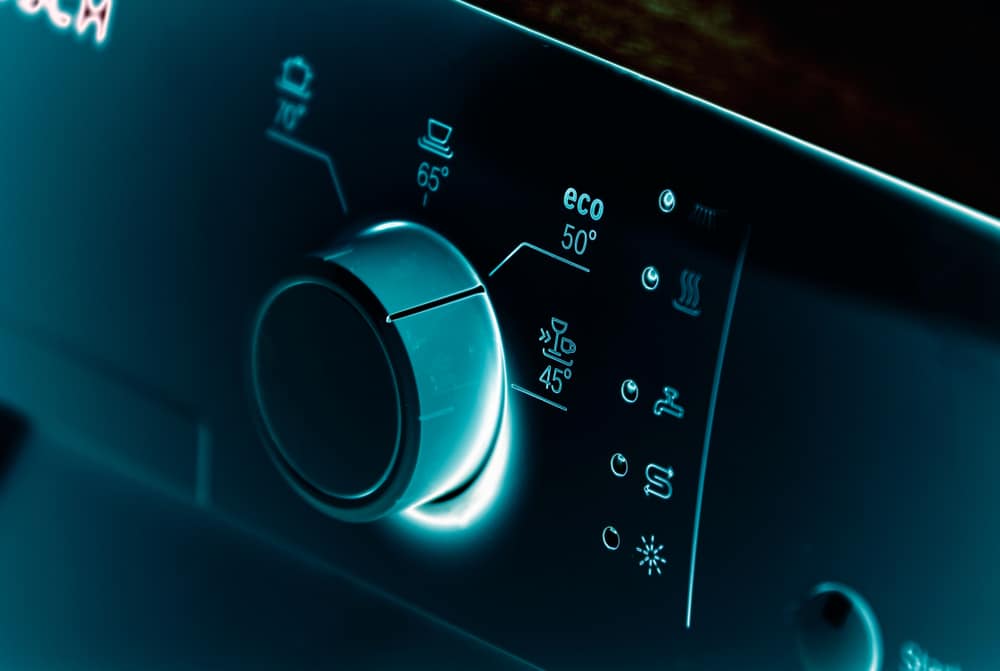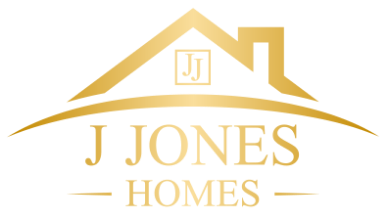Sustainable living is no longer just a buzzword—it’s a way of life that combines environmental responsibility with comfortable and efficient design. Creating a sustainable custom home for eco-conscious homeowners in Columbia, Missouri is the perfect opportunity to align your values with your living space. It’s not just about reducing your carbon footprint; it’s about building a home that is healthier, more energy-efficient, and uniquely tailored to your lifestyle.
From cutting-edge solar technology to sustainable materials and innovative water systems, incorporating green features into your custom home design is easier than you think. This guide will walk you through some of the smartest and most impactful ideas for making your dream home eco-friendly.
Smart Energy Management
Solar Integration
Missouri’s climate is perfect for harnessing the power of the sun. Solar panels can significantly cut energy costs and make your home more energy-independent. For maximum efficiency, consider:
- South-Facing Roofs: Ideal for capturing sunlight throughout the day.
- Battery Storage Systems: Store excess energy for use during cloudy days or power outages.
- Smart Inverters: Seamlessly integrate your solar setup with the grid.
- Solar Water Heating: A cost-effective way to heat water sustainably.
- Backup Power: Always have a reliable energy source in case of grid issues.
Energy-Efficient Windows
Windows play a crucial role in energy conservation. Modern window technology includes:
- Triple-Pane Glass with Low-E Coatings: Reduces heat transfer and enhances insulation.
- Argon Gas Filling: For better thermal performance.
- Strategic Placement: Maximize natural light while minimizing heat loss.
- Automated Shading Systems: Control sunlight exposure with a simple tap.
- UV Protection Features: Protect your interiors from fading caused by harmful UV rays.
Advanced Insulation Systems
Building Envelope
A well-insulated building envelope is the foundation of an energy-efficient home. Key options include:
- Spray Foam Insulation: Forms an airtight seal to prevent heat loss.
- Structural Insulated Panels (SIPs): Combine insulation and structural support in one.
- Air Sealing Techniques: Keep drafts out by sealing gaps and cracks.
- Thermal Bridge Prevention: Insulate areas prone to heat transfer.
- Vapor Barriers: Prevent moisture from compromising your home’s structure.
Temperature Control
Reduce your energy usage without sacrificing comfort through advanced temperature management systems like:
- Zoned HVAC Systems: Customize heating and cooling by room or zone.
- Smart Thermostats: Learn your habits and adjust temperatures automatically.
- Energy Recovery Ventilators (ERVs): Recover energy while bringing in fresh air.
- Geothermal Heating and Cooling: Utilize the earth’s consistent underground temperature.
- Ceiling Fan Optimization: Make the most of your ventilation for a comfortable space.
Water Conservation
Smart Water Management
Water conservation is essential in sustainable home design. Incorporate features that reduce water wastage, such as:
- Dual-Flush Toilets: Use less water for smaller flushes.
- Low-Flow Fixtures: Sensor-controlled faucets and showerheads minimize unnecessary water use.
- Greywater Recycling Systems: Repurpose water from sinks and showers for irrigation.
- Smart Irrigation Controls: Water your garden intelligently based on weather conditions.
- Leak Detection Technology: Catch and fix leaks before they become big problems.
Rainwater Harvesting
Make the most of Missouri’s rainfall with rainwater collection systems that include:
- Underground Storage Tanks: Conveniently collect and store rainwater.
- Filtration Systems: Ensure harvested water is safe and clean for use.
- Irrigation Integration: Use rainwater to keep your garden lush and green.
- Smart Monitoring Systems: Track water collection and usage.
- Overflow Management: Prevent excess water from causing damage.
Sustainable Materials
Eco-Friendly Building Materials
The materials you choose for your home can significantly reduce environmental impact. Look for options like:
- Recycled Steel and Metal Components: Durable and sustainable.
- Sustainable or Reclaimed Wood: Add character while reducing deforestation.
- Low-VOC Materials: Maintain indoor air quality with non-toxic paints and finishes.
- Locally Sourced Stone and Brick: Support regional industries and reduce transportation emissions.
- Recycled Glass and Concrete Products: Stylish and environmentally friendly.
Durable Design
A sustainable home is built to last. Focus on durable designs such as:
- Weather-Resistant Exteriors: Protect your home from the elements.
- Impact-Resistant Roofing: Long-lasting solutions that need fewer replacements.
- Flooring with Longevity: Bamboo, cork, or engineered wood are sustainable options.
- Quality Window Systems: Designed to last while improving energy efficiency.
- Sustainable Landscaping: Drought-resistant plants and permeable paving stones.
Indoor Air Quality
Ventilation Systems
Ensuring good air quality is vital for a healthy home. Consider these ventilation features:
- HEPA Filtration Systems: Trap allergens and particles.
- UV Air Purification: Neutralize bacteria and viruses.
- CO2 Monitoring: Ensure optimal air composition.
- Humidity Control: Avoid mold and maintain comfort.
- Fresh Air Exchange Systems: Efficiently replace stale indoor air.
Natural Solutions
Passive solutions can also enhance air quality, such as:
- Indoor Plants: Serve as natural air purifiers.
- Natural Ventilation: Strategically placed windows encourage airflow.
- Non-Toxic Building Materials: Avoid harmful chemicals in your home’s construction.
- Proper Moisture Management: Keep humidity in check to reduce mold risks.
- Allergen Reduction Strategies: Hypoallergenic design considerations.
Smart Home Integration
Energy Monitoring
Track and optimize energy use with innovative tools like:
- Real-Time Energy Displays: Monitor usage as it happens.
- Consumption Analysis: Get insights into where energy is being used.
- Peak Usage Alerts: Receive notifications to reduce demand during high-cost periods.
- Cost-Saving Recommendations: Adjust habits to lower bills.
- Performance Tracking: Ensure systems are functioning at peak efficiency.
Automated Systems
Automation doesn’t just save time—it saves resources, too. Implement systems for:
- Smart Lighting: Adjust brightness based on room occupancy.
- Automated Temperature Adjustment: Keep comfort consistent while cutting costs.
- Water Usage Monitoring: Stay informed about consumption.
- Integrated Security Systems: Eco-friendly security that uses minimal energy.
- Remote Management: Control your home from anywhere via the app.

Eco-Friendly Washing Machines: A Step Toward Sustainable Laundry
When designing a sustainable custom home, even your choice of appliances plays a significant role in reducing environmental impact. Washing machines, often among the most frequently used appliances in a household, provide an excellent opportunity to save water and energy while maintaining functionality. Here’s how you can incorporate eco-friendly laundry solutions into your sustainable home design:
Energy-Efficient Models
Investing in an energy-efficient washing machine can significantly reduce electricity consumption. Look for:
- ENERGY STAR® Certified Models: These machines use up to 25% less energy and 33% less water compared to standard models.
- Inverter Technology: Adjusts motor speed for optimal performance, reducing energy usage.
- Automatic Load Sensors: Detect the size of the load and adjust water and energy usage accordingly.
Water-Saving Features
Conserving water is a key component of sustainable living. Modern washing machines come equipped with:
- High-Efficiency (HE) Washers: Use significantly less water per load compared to traditional machines.
- Recycling Water Systems: Reuse rinse water for the next wash cycle to minimize waste.
- Customizable Wash Cycles: Select eco-friendly cycles that use less water for lightly soiled loads.
Cold Water Settings
Modern detergents are designed to work effectively in cold water, reducing the need to heat water during washing. Cold water washing can:
- Cut Energy Costs: Water heating accounts for a significant portion of energy use in laundry.
- Extend Clothing Lifespan: Cold water is gentler on fabrics, reducing wear and tear.
Smart Washing Machines
Integrating a smart washing machine into your home automation system can further enhance efficiency:
- Remote Control: Start or monitor wash cycles from your phone.
- Energy Monitoring: Track energy and water usage for every load.
- Scheduled Washing: Run loads during off-peak energy hours to reduce costs.
- Maintenance Alerts: Receive notifications about cleaning cycles or potential issues to keep the machine running efficiently.
Greywater Integration
Incorporate a greywater recycling system to reuse washing machine water for other household purposes like irrigation. This reduces overall water consumption and makes your home even more sustainable.
Low-Impact Detergents
Pair your eco-friendly washing machine with biodegradable, phosphate-free detergents. These detergents are better for the environment and safer for your home’s plumbing and septic systems.
By selecting an efficient, durable, and smart washing machine, you’re taking an important step toward creating a more sustainable and eco-conscious household. Every thoughtful appliance choice helps reduce your home’
Your Eco-Friendly Future Starts Today
Building a sustainable custom home doesn’t mean sacrificing luxury or comfort. By incorporating these modern eco-friendly features, you are not only contributing to a healthier planet but also investing in a home that is efficient, cost-effective, and designed for the future.
Start your sustainable living journey by working with experienced green builders who understand your vision. From smart energy management to durable design, every thoughtful choice you make today will pay dividends tomorrow—for both your lifestyle and the environment.
Are you ready to create the eco-friendly home of your dreams in Columbia, Missouri? Take the first step today!

